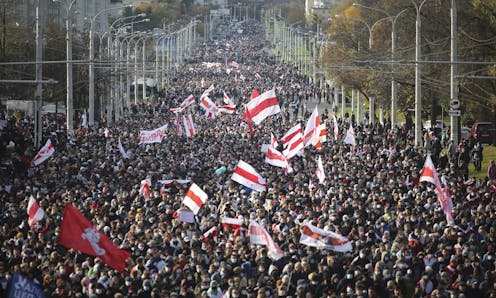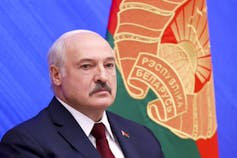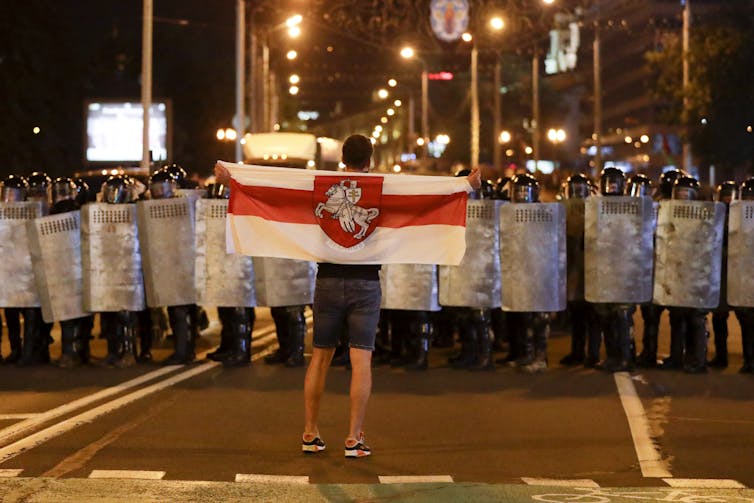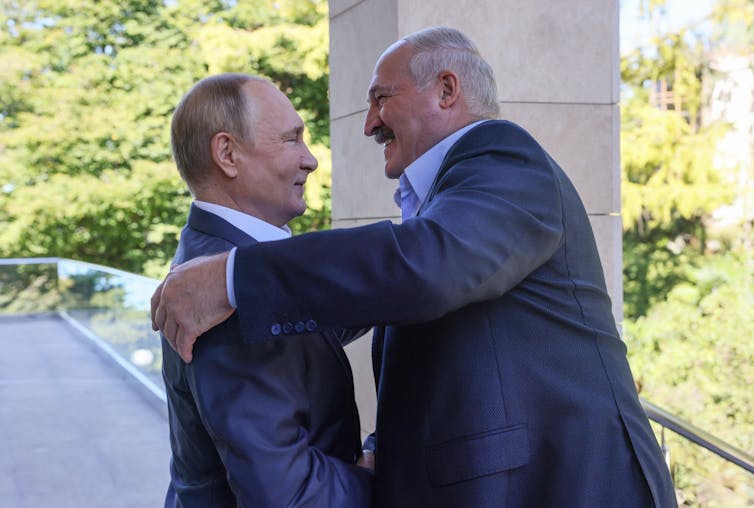
In late September 2022, the International Congress of Belarusian Studies was held in Kaunas, Lithuania. After it ended, an attendee’s car broke down. He took it to a garage but the management refused to service a car owned by a Belarusian. Ultimately, it had to be towed back over the border into Belarus.
The incident seems minor, but it illustrates how Europeans are linking Belarusians with Russians and partly blame them for the war in Ukraine.
There are numerous examples of such discrimination.
Rejecting applications
Some European universities have refused to accept Belarusian students. Estonian universities have rejected applications from both Russian and Belarusian students for the current academic year.
Linköping University in Sweden has ended co-operation with Belarusian state organizations. However, it also excludes Belarusian student applicants.
Furthermore, despite the ongoing state terror in Belarus, the Swedish Migration Service continues to deport Belarusian asylum-seekers, designating the country as “safe.”
A number of employers from different European Union countries no longer recruit Belarusians, referring to their complicity in the attack on Ukraine. In Latvia, Poland and Georgia, some landlords refuse to rent apartments to Belarusians.
Fled to Poland
Many Belarusian dissidents who had taken refuge in Ukraine after 2020 fled to Poland. However, some found their car tires slashed at night. Others were denied fuel.
Polish bookstores have removed Belarusian books from shelves.
Ukrainian President Volodymyr Zelenskyy’s key adviser, Mykhailo Podolyak, has been especially critical of Belarus.
He publicly criticized the decision to jointly award the Nobel Peace Prize to Belarusian human-rights advocate Ales Bialiatski, the defunct Russian civil rights group, Memorial, and the Ukrainian Center for Civil Liberties.
Such critiques abound despite Belarusians’ overwhelming disapproval of de facto leader Alexander Lukashenko’s actions and their support for Ukraine through civic movements. Three Belarusian regiments are fighting for Ukraine.
The Belarusian government regards all those studying abroad as potential spies and refuses to recognize their European degrees. The students are therefore despised both at home and abroad.
Lukashenko is unpopular
In Russia, there have been some modest public protests against the war, described in the media as a “special military operation.” And Vladimir Putin remains a popular president.
That’s not the case for Lukashenko in Belarus.

The Lukashenko regime has supported Russia, resulting in European states lumping all Belarusians together with Russians as co-aggressors. But that’s both misinformed and counterproductive.
Two years ago, 250,000 people gathered in the streets of Minsk, the Belarusian capital. They protested the fabricated results of the presidential elections and Lukashenko’s brutal crackdown against his own citizens.
It was the largest single demonstration in the history of the independent state. Protests were held even in villages and small towns in every region of the country.
The demonstrators carried the red-and-white national flag, outlawed by a referendum held by Lukashenko in 1995, and adopted peaceful tactics. Most had voted for Sviatlana Tsikhanouskaya, a 38-year-old English teacher now living in exile in Lithuania.

Tsikhanouskaya decisively won in voting at Belarusian embassies abroad. In Belarus, her political rallies — held with leaders of two other campaigns, Maryia Kalesnikava and Veranika Tsapkala — attracted mass audiences in cities around the country.
The response of Belarusian authorities was brutal and ruthless. Thousands were imprisoned, tortured or forced to flee abroad. The Viasna organization has recognized 1,342 political prisoners in Belarus.
Why Lukashenko remains in charge
Why is Lukashenko still in power? There are several possible reasons.
First, the demonstrators’ protests were peaceful and not accompanied by a national strike movement. Workers feared for their families should they take such action.
Second, the security forces remained largely loyal to Lukashenko, fearing for their livelihoods if the opposition came to power. The perpetrators of violence were frequently identified in opposition social media.
Third, Putin’s Russia backed Lukashenko and provided him with a US$1.5 billion loan. The two countries adopted a joint military doctrine a year ago. A military exercise in Belarus that preceded Russia’s attack on Ukraine was part of this policy.
Lukashenko is an illegitimate and largely unrecognized leader. On Sept. 23, 2020, he even had to inaugurate himself secretly for another term as president.

Anti-war protests
Belarusians took to the streets on Feb. 27 and 28, 2022 — just days after Russia’s invasion of Ukraine — in the country’s largest protests since 2020. Since the start of the conflict, more than 1,500 people have been arrested for anti-war actions.
Are Belarusians to blame for the war? How does Europe expect to see democratic changes in the country without supporting their exiles: the students, professionals and workers who represent the future of Belarus? The benevolence shown to Belarusian exiles in 2020 has turned into hostility because of Russia’s attack on Ukraine.
Most European states recognize and support Tsikhanouskaya as Belarus’s legitimate leader.
Yet they discriminate against the exiles who are her supporters, even refusing to repair their broken-down cars. It makes no sense — and must end.
The authors do not work for, consult, own shares in or receive funding from any company or organization that would benefit from this article, and have disclosed no relevant affiliations beyond their academic appointment.
This article was originally published on The Conversation. Read the original article.







